Why Eric Cantona Ticks Every Box When it Comes to Being a Manchester United Legend
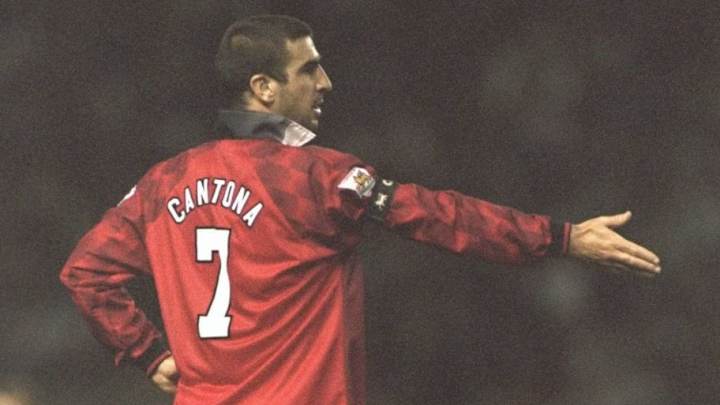
'Legend' is a word so overused in media coverage of modern football that in some cases it has become a way of describing anyone that used to play for a club. The Daily Express, for example, rather questionably referred to Paul Parker as a 'Manchester United legend' last year.
Legendary status is more than simply being a great player, it is for those whose memory transcends generations, who drove their club onto success that without them would not have been possible, possessing great character and whose legacy continued to shape their club.
There are those for whom the term 'legend' is definitely appropriate, and as far as Manchester United are concerned Eric Cantona is a player who ticks every box.
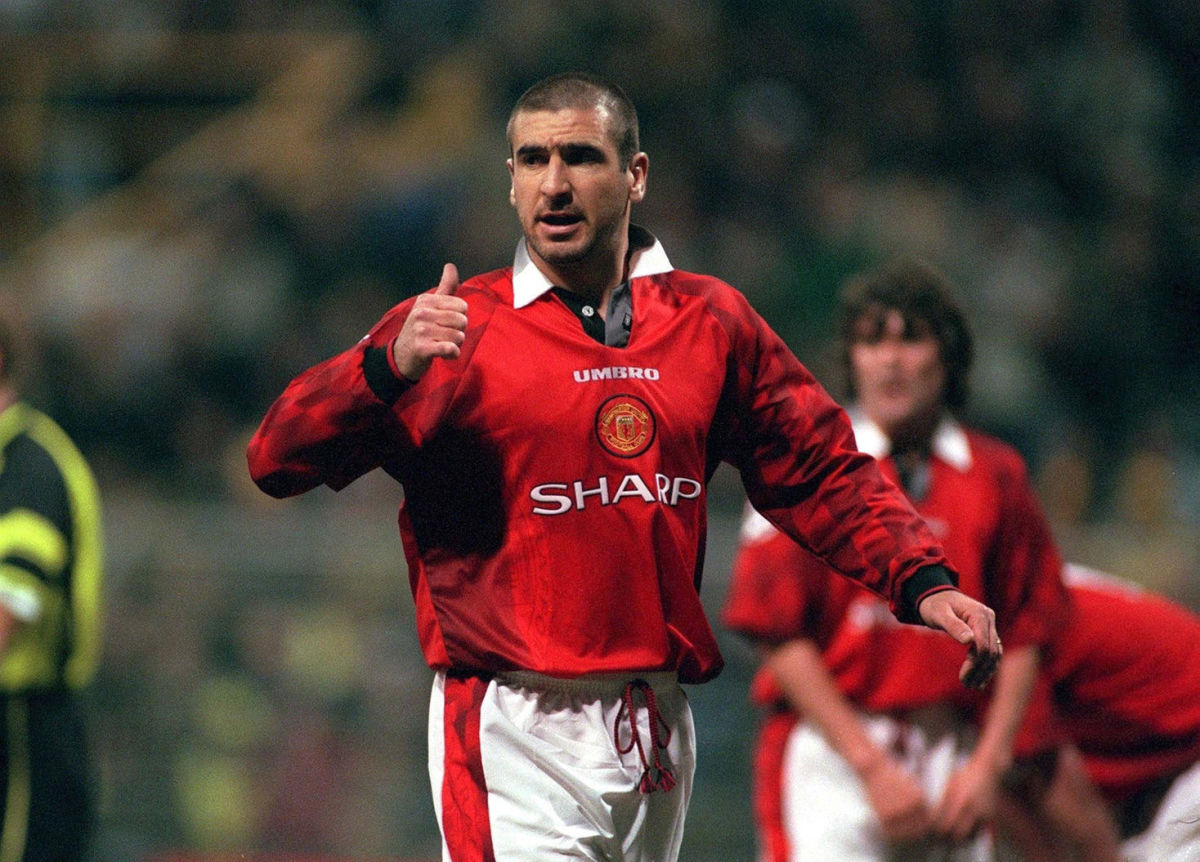
"There is something really special about him and I would have loved to play with him. The King," current United star Juan Mata said recently.
Burning his bridges in France, Cantona arrived in England a flawed genius in January 1992. He had announced a kneejerk retirement the previous month after being banned for two months by the French Football Federation for throwing a ball at a referee while in action for Nimes.
He travelled to South Yorkshire to train with Sheffield Wednesday, something that Owls manager Trevor Francis revealed in a 2012 interview was only ever done as a favour to France national team coach Michel Platini to get Cantona in the 'shop window' to sign for a new club.
The often repeated story that he was on a trial at Wednesday and the club had the intention of signing him was ultimately a myth and little more.
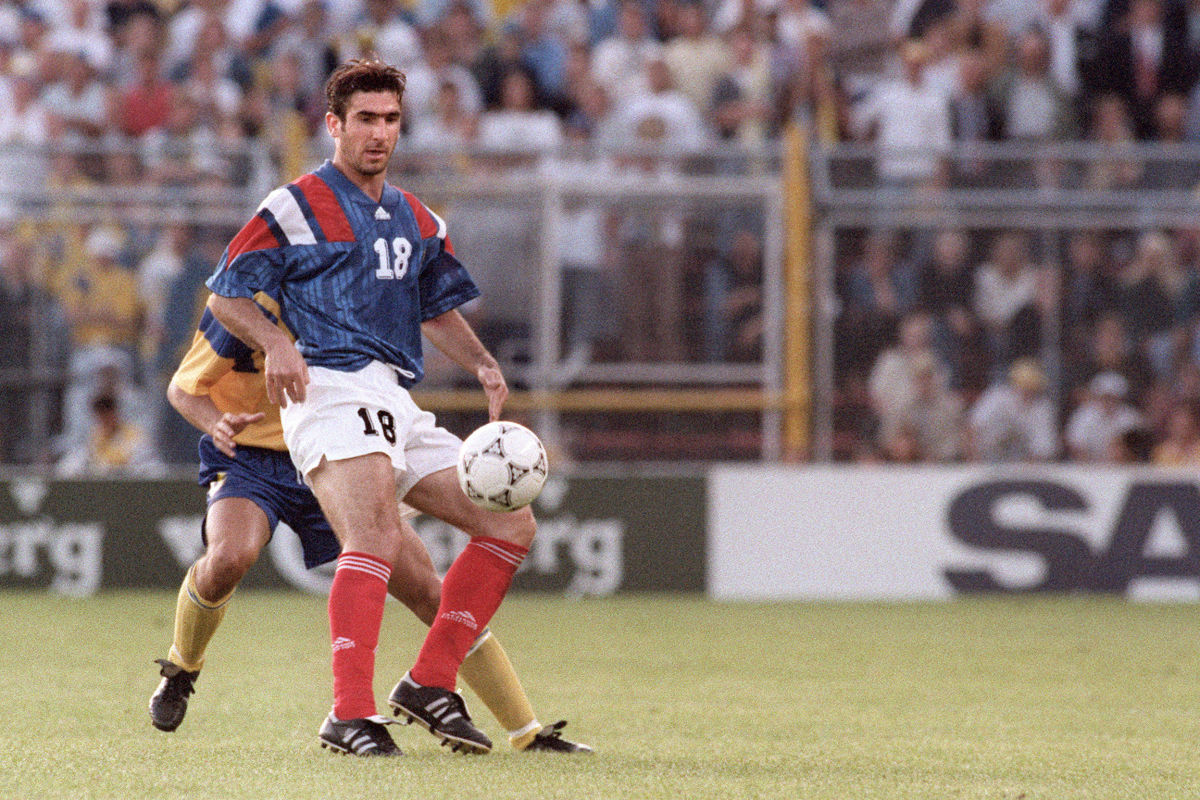
Cantona wound up joining Leeds soon afterwards and played a key role as the club won the 1991/92 First Division title. But it was in Manchester that Cantona really made his name, cementing his place in English football history and become a veritable Old Trafford legend.
The process that took him to United in November 1992 started with phone call from Leeds about the availability of Denis Irwin. Alex Ferguson refused to sell the full-back but made clear his interest in Cantona, with the Frenchman signing for United for £1.2m a few days later.
The first thing that makes Cantona a United legend is the impact he made on the pitch.
At the dawn of the Premier League era, the club had not won a league title for 26 years, since the days of Matt Busby, Bobby Charlton, George Best and Denis Law. And, having finished second to Cantona's Leeds the previous season, Ferguson knew he need something extra for that last push to go one better.
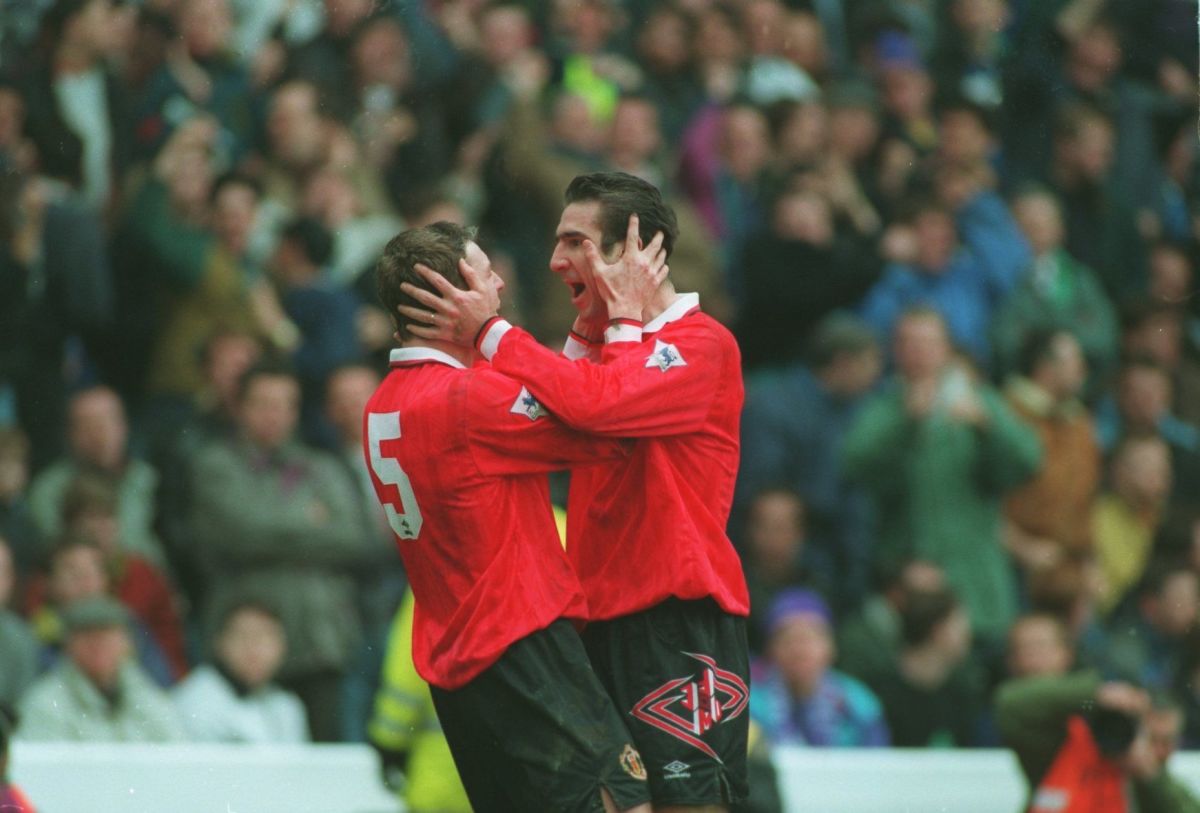
United were as low as 10th in the league table at the start of November after a run of seven straight games without a win, and only five wins in total from their opening 15 games. Yet the team lost just two of 25 games between Cantona's debut and the end of the season.
As well as adding crucial extra quality to the team, he scored key goals throughout that run, including one in a 3-1 win against title rivals Norwich, finishing with nine goals in 22 appearances as United ended their long drought to lift the first ever Premier League trophy.
Cantona scored another 25 goals in all competitions the following season as United retained the league title and won an FA Cup to complete a domestic double. He was again in top form as 1994/95 got underway, netting 12 times in 21 appearances until an infamous violent altercation with an abusive Crystal Palace fan saw him slapped with a nine-month ban.
United lost the title race to nouveau riche Blackburn in his absence. But upon his return in 1995/96, another Premier League and FA Cup double made its way to Manchester, while the club was once more the best in England, while reaching the semi finals of the Champions League, in 1996/97.
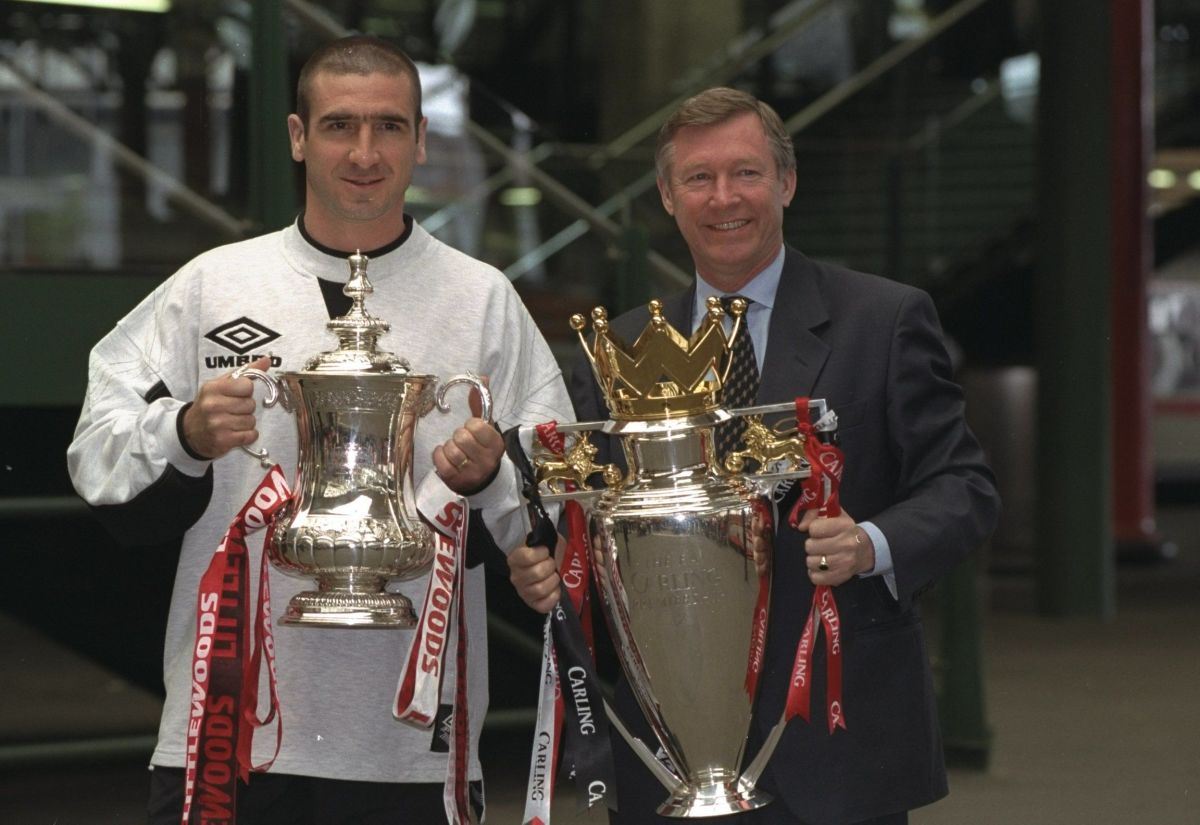
Cantona's tally of major trophies at United totalled six in fewer than five full seasons, with the club only failing to win the 1994/95 Premier League, also losing the FA Cup final, when he was banned.
But success isn't the only thing that makes him a legend. There was always an air of mystique and awe around Cantona. Fans knew to expect the unexpected because he had the ability to pull off the sublime, while his flair came at a time when foreign players bringing continental influences into English football were still relatively rare.
He played on the edge, as the Selhurst Park 'kung fu' incident can attest to, and was full of passion and aggression. Off the pitch, however, he was not the typical professional footballer, rather, he was a measured, cultured and intelligent man who pursued poetry and philosophy. 'When the seagulls follow the trawler, it's because they think sardines will be thrown into the sea', the line delivered when he faced the media in 1995, is still talked about to this day.
Then there is the legacy that Cantona left behind. He was a catalyst not once but twice during his United career, inspiring Ferguson's first great team to success and later serving as a mentor to a generation of incredibly talented home grown players - Ryan Giggs, David Beckham, Paul Scholes, Nicky Butt and the Neville brothers.
It was a largely new look team that won the 1995/96 double, with Cantona's return from suspension coinciding with United reeling in Newcastle after the Magpies had built a 12-point lead at the top of the Premier League table. A year older and wise, that young team guided by Cantona kept their nerve to again finish top of the pile, with those players going on to help United dominate English for more than a decade to follow.
The final thing that adds to Cantona's legend is that he retired early, walking away at the top.
Cantona announced his shock exit from professional shortly after he had lifted United's fourth Premier League trophy in five seasons. He was just 30 years of age at the time, choosing to pass on the baton from a place atop his pedestal rather than risk a decline thereafter.
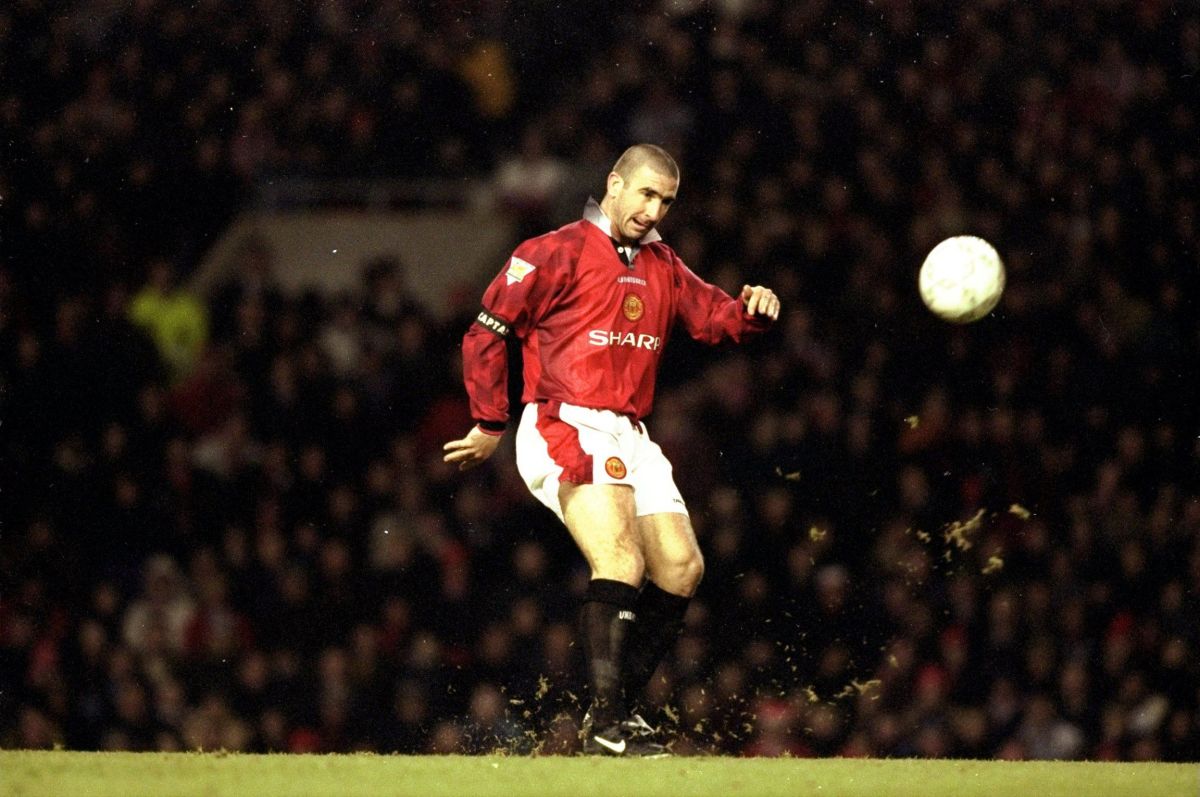
Even now, more than 21 years after he hung up his boots, United fans at Old Trafford still regularly sing about Cantona. He was and is a true legend of the club.
